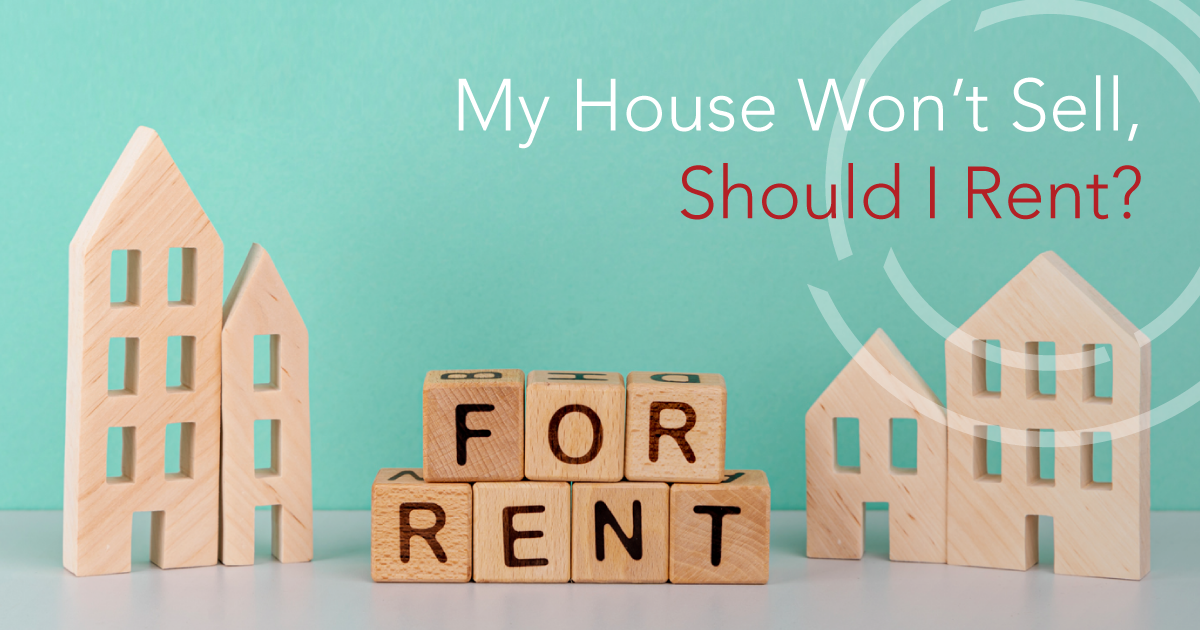My house won’t sell, should I rent?
If you are struggling to sell your house, but need to move sooner rather than later, then renting out your current house could be a viable option. However, it is not a straightforward decision, so it’s vital to take expert financial and tax advice to understand the pros & cons of each route. Here are a few things to consider before you look into it in more depth.
When does renting your home make sense?
Before you assume it’s a good idea to let the property out, it is worth analysing the implications in the future, at least by 5 or even 10 years.
Here are some actions you should consider taking, to make sure you understand the implications of selling versus renting from a financial perspective:
Find out what the rental market is like for your existing home. It is worth speaking to a local agent as online valuations tend to use an average worth.
Speak to a local agent to see what your existing home could be worth in the future – has it already benefited from huge capital growth over the last few years and these rises are now slowing or is there a reason for a potential big uplift, such as new transportation?
Understand the true costs of renting a property, including what upgrades are required to let legally to tenants – this could potentially cost thousands of pounds.
Work out if you can afford the new property you want and cover the costs of the existing property, especially if you haven’t any rent coming in.
Ensure you understand the tax implications of earning rent and securing capital growth from the property. Will you lose any benefits such as child benefit if the rental income takes your earnings over £50,000?
Check if your existing lender on your first home would allow you to retain the current mortgage terms (and rates), how long for, and at what cost (if any).
Understand the implications and how you can insure against the risks of letting. These include voids, tenant damage, loss of rent, eviction costs, job loss, and sickness, all of which can make it challenging to let and own a home at the same time.
Find out if you need to be licensed or registered as a landlord (you do in Northern Ireland, Wales, Scotland) or if the property requires a license from the local authority to be let. Know the costs and how you will abide by and keep up with the national and local laws.
Turning your home into an investment can be a lucrative business - you could make an income and secure capital growth from retaining the existing property and letting it. But before you rush in you must ensure you fully understand the implications and possible pitfalls.
Minimum rental terms
You will need to let the property typically for a minimum period of six months, and if you suddenly decide you want to sell, you can’t just turn up at the property and throw out your tenants.
Your legal obligations
You can’t just ‘test the market’ – Some things need to be in place before you advertise, such as an EPC. And you will need to make sure the property meets current legal requirements.
For example, to let a property from April 2018, if an EPC on a property is either F or G rated (and not Listed) then you will not be able to let it.
If there is damp and mould, poor locks, broken windows, or fences then the property isn’t legally safe to let and could incur fines of up to £30,000 for each mistake you make.
This is the case even if you are letting the home to friends and family!
The bottom line
Overall, there are 400+ rules and regulations you need to know before you let.
An easier way to let legally is to let through an agent that is a member of ARLA, NALS or UK ALA. This will also mean they have client money protection should someone walk off with your rental income or the company goes bust.
Letting property is extremely complex and before you decide to do it, you need to understand it is an investment and a large one at that.
It has different tax implications for different people, which can mean you lose benefits or end up in a higher tax bracket.
This may mean you end up potentially worse off than if you had sold the property.
The best course of action is to speak to a local agent. 360 Properties is an ARLA member, open 7 days a week and we are always happy to give free, no obligation advice to anyone who is considering renting their property, now or in the future.

